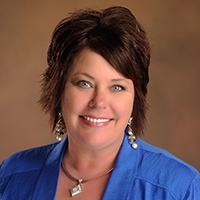Afraid of a Stock Market Correction? Get a Plan
With stocks' record run, some investors can't help but be worried a dip could be coming. A financial strategy can help you feel more confident.


Profit and prosper with the best of Kiplinger's advice on investing, taxes, retirement, personal finance and much more. Delivered daily. Enter your email in the box and click Sign Me Up.
You are now subscribed
Your newsletter sign-up was successful
Want to add more newsletters?

Delivered daily
Kiplinger Today
Profit and prosper with the best of Kiplinger's advice on investing, taxes, retirement, personal finance and much more delivered daily. Smart money moves start here.

Sent five days a week
Kiplinger A Step Ahead
Get practical help to make better financial decisions in your everyday life, from spending to savings on top deals.

Delivered daily
Kiplinger Closing Bell
Get today's biggest financial and investing headlines delivered to your inbox every day the U.S. stock market is open.

Sent twice a week
Kiplinger Adviser Intel
Financial pros across the country share best practices and fresh tactics to preserve and grow your wealth.

Delivered weekly
Kiplinger Tax Tips
Trim your federal and state tax bills with practical tax-planning and tax-cutting strategies.

Sent twice a week
Kiplinger Retirement Tips
Your twice-a-week guide to planning and enjoying a financially secure and richly rewarding retirement

Sent bimonthly.
Kiplinger Adviser Angle
Insights for advisers, wealth managers and other financial professionals.

Sent twice a week
Kiplinger Investing Weekly
Your twice-a-week roundup of promising stocks, funds, companies and industries you should consider, ones you should avoid, and why.

Sent weekly for six weeks
Kiplinger Invest for Retirement
Your step-by-step six-part series on how to invest for retirement, from devising a successful strategy to exactly which investments to choose.
Lately it seems as if every client or potential client I see asks about the possibility of a looming market correction.
Investors are loving these good times, but they’re smart — they know the market runs in cycles, and the good times can’t last forever.
The markets keep hitting record highs. We’re in the second-longest bull run in history. And yet there’s uncertainty, too, globally and in this country with our new president.
From just $107.88 $24.99 for Kiplinger Personal Finance
Become a smarter, better informed investor. Subscribe from just $107.88 $24.99, plus get up to 4 Special Issues

Sign up for Kiplinger’s Free Newsletters
Profit and prosper with the best of expert advice on investing, taxes, retirement, personal finance and more - straight to your e-mail.
Profit and prosper with the best of expert advice - straight to your e-mail.
When people ask if a correction is coming and what they should do to prepare, my answer for most is: Stay the course.
Whether you’re still working or already retired, consistency pays off. Especially in uncertain times, when a market correction is on many people’s minds, it may be best to stick to your plan. If you don’t, if you overreact, you could end up making financial decisions that may set you back in your strategy.
Of course, if you’re worried that the plan you have in place is not the best, that’s a different conversation. Then it may make sense to make some changes. If that’s the case, here are a few steps to consider:
1. Get professional advice.
Perhaps you’ve been handling things just fine on your own with your 401(k) or 403(b). As you near retirement, however, it’s time to speak to a specialist who can help you take the focus from accumulation and growth and put it on income planning and asset protection.
Many financial professionals will consult with a potential client once or twice with no obligation, so you can get a feel for whether you’re a good fit. You should ask for an analysis to see if there are any redundancies in your current portfolio, if you are truly diversified and if you are paying any unnecessary fees.
You also should talk about risk — how much you can stomach emotionally, how much you can afford and how much is in your current portfolio. Your financial professional can use a program like Riskalyze to help assess and align your risk. That is especially important if you’re anticipating a market downturn and might be tempted to make trades based on your anxiety.
2. Set up a retirement blueprint.
A lot of people have piles of statements from different accounts, but that doesn’t always mean they have a strategy in place. In retirement, you need a detailed plan for your money — and that plan should help give you more confidence that you’ll be OK.
People tend to get out of the market when it’s down, and by then they may have already lost money. Then they may get back in when it’s coming around again … but by then, most of the gains could already have been made. That bad timing can be very costly.
3. Know the difference between a pullback, a correction and a bear market.
Everyone is talking about a coming correction, but what exactly does that mean? It isn’t the same as a pullback — typically defined as a short-term decline of 5% to 9% from a recent high. And it isn’t as menacing as a bear market, which is a downturn of 20% or more that can last for months.
A correction is the middle ground — a 10% to 19% drop from recent highs. It’s a little scarier than a pullback, but it’s still temporary. It is sometimes an indicator that we’re going to have a bear market, but that’s not always the case. It can be an opportunity for investors hoping to get discounted prices. Unfortunately, it’s also when some people go wrong based on their emotions. Fight the instinct to flee.
4. Diversify.
The old-school equation for diversification is a 60-40 split between equities and bonds — and that’s not always a bad scenario. But these days, there are so many more options, both for protection and growth.
If interest rates continue to rise, it could have a ripple effect, and the bond market likely will suffer. In retirement, that may not help you as an inflation hedge, so it’s important to look at alternatives such as annuities. I know, “annuity” is a dirty word to some financial professionals — but that could be because they either can’t sell them or they don’t really understand how they work. It’s unfair to broad-brush them all with the same bad rap. A good annuity can be a valuable piece of your plan. It’s a long-term financial vehicle — the insurance company gets to use your money for a pre-determined number of years — but that’s not a bad thing for someone who is 60 years old. Annuities aren’t for everyone, though, so ask your financial professional if they would be a fit for you.
If you’re ready to make a change or create your first real retirement plan, find a financial professional who is focused on informing and enabling you, not selling you products. And be careful about what you read and hear. It’s good to have information, but what you see in the media isn’t necessarily tailored to your specific needs.
An experienced and knowledgeable financial professional with a retirement focus can help equip you to work toward your goals — while considering uncertainty in the market.
Kim Franke-Folstad contributed to this article.
Profit and prosper with the best of Kiplinger's advice on investing, taxes, retirement, personal finance and much more. Delivered daily. Enter your email in the box and click Sign Me Up.

Christy Smith, an Investment Adviser Representative and insurance professional, is the founder of Presley Wealth Management, which focuses on retirement planning and insurance. She co-hosts a weekly radio show. She is married and has three children.
Investment advisory services offered through AE Wealth Management, LLC (AEWM). AEWM and Presley Group and Presley Wealth Management are not affiliated entities. Investing involves risk, including the potential loss of principal. Insurance and annuity product guarantees are backed by the financial strength and claims-paying ability of the issuing insurance company.
-
 Dow Adds 1,206 Points to Top 50,000: Stock Market Today
Dow Adds 1,206 Points to Top 50,000: Stock Market TodayThe S&P 500 and Nasdaq also had strong finishes to a volatile week, with beaten-down tech stocks outperforming.
-
 Ask the Tax Editor: Federal Income Tax Deductions
Ask the Tax Editor: Federal Income Tax DeductionsAsk the Editor In this week's Ask the Editor Q&A, Joy Taylor answers questions on federal income tax deductions
-
 States With No-Fault Car Insurance Laws (and How No-Fault Car Insurance Works)
States With No-Fault Car Insurance Laws (and How No-Fault Car Insurance Works)A breakdown of the confusing rules around no-fault car insurance in every state where it exists.
-
 For the 2% Club, the Guardrails Approach and the 4% Rule Do Not Work: Here's What Works Instead
For the 2% Club, the Guardrails Approach and the 4% Rule Do Not Work: Here's What Works InsteadFor retirees with a pension, traditional withdrawal rules could be too restrictive. You need a tailored income plan that is much more flexible and realistic.
-
 Retiring Next Year? Now Is the Time to Start Designing What Your Retirement Will Look Like
Retiring Next Year? Now Is the Time to Start Designing What Your Retirement Will Look LikeThis is when you should be shifting your focus from growing your portfolio to designing an income and tax strategy that aligns your resources with your purpose.
-
 I'm a Financial Planner: This Layered Approach for Your Retirement Money Can Help Lower Your Stress
I'm a Financial Planner: This Layered Approach for Your Retirement Money Can Help Lower Your StressTo be confident about retirement, consider building a safety net by dividing assets into distinct layers and establishing a regular review process. Here's how.
-
 The 4 Estate Planning Documents Every High-Net-Worth Family Needs (Not Just a Will)
The 4 Estate Planning Documents Every High-Net-Worth Family Needs (Not Just a Will)The key to successful estate planning for HNW families isn't just drafting these four documents, but ensuring they're current and immediately accessible.
-
 Love and Legacy: What Couples Rarely Talk About (But Should)
Love and Legacy: What Couples Rarely Talk About (But Should)Couples who talk openly about finances, including estate planning, are more likely to head into retirement joyfully. How can you get the conversation going?
-
 How to Get the Fair Value for Your Shares When You Are in the Minority Vote on a Sale of Substantially All Corporate Assets
How to Get the Fair Value for Your Shares When You Are in the Minority Vote on a Sale of Substantially All Corporate AssetsWhen a sale of substantially all corporate assets is approved by majority vote, shareholders on the losing side of the vote should understand their rights.
-
 How to Add a Pet Trust to Your Estate Plan: Don't Leave Your Best Friend to Chance
How to Add a Pet Trust to Your Estate Plan: Don't Leave Your Best Friend to ChanceAdding a pet trust to your estate plan can ensure your pets are properly looked after when you're no longer able to care for them. This is how to go about it.
-
 Want to Avoid Leaving Chaos in Your Wake? Don't Leave Behind an Outdated Estate Plan
Want to Avoid Leaving Chaos in Your Wake? Don't Leave Behind an Outdated Estate PlanAn outdated or incomplete estate plan could cause confusion for those handling your affairs at a difficult time. This guide highlights what to update and when.